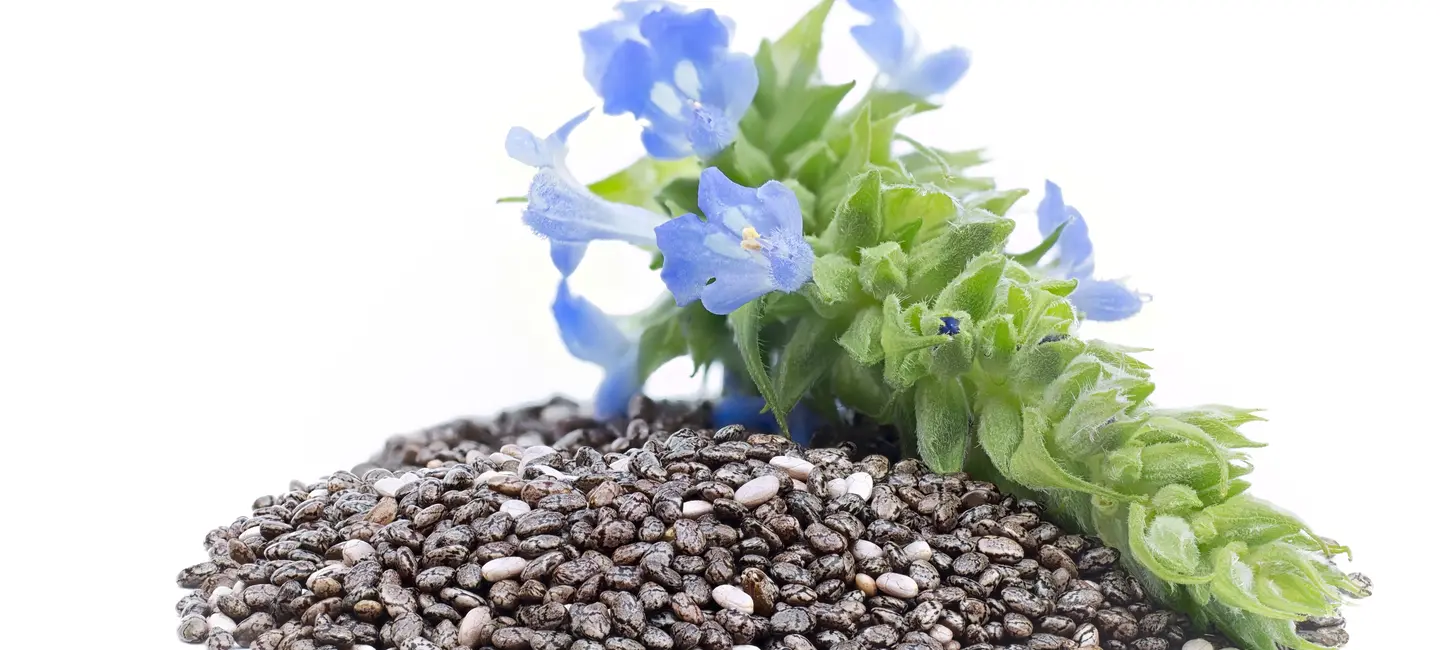
Chia (Salvia hispanica) is an herb that originated in Mexico and was cultivated by the Aztecs. It's grown for its seed, a source of omega-3 fatty acids.
In addition to omega-3 fatty acids such as alpha-linolenic acid (ALA), chia seeds contain a large amount of dietary fiber. Omega-3 fatty acids and dietary fiber might help reduce risk factors for heart disease.
People use chia seed for diabetes, athletic performance, high blood pressure, heart disease, itching, and many other conditions, but there is no good scientific evidence to support these uses.
Is It Effective?
NatMed Pro rates effectiveness based on scientific evidence according to the following scale: Effective, Likely Effective, Possibly Effective, Possibly Ineffective, Likely Ineffective, Ineffective, and Insufficient Evidence to Rate.
- High levels of cholesterol or other fats (lipids) in the blood (hyperlipidemia). Consuming chia by mouth doesn't seem to reduce lipid levels in people who are more likely to develop high levels of cholesterol or other fats. This includes people with diabetes, metabolic syndrome, fatty liver disease, or obesity.
- Obesity. Consuming chia seeds doesn't help reduce body weight in overweight or obese adults.
There is interest in using chia for a number of other purposes, but there isn't enough reliable information to say whether it might be helpful.
Is it Safe?
When taken by mouth: Chia is commonly consumed in foods. Chia is possibly safe when used as medicine for up to 6 months. Large doses might cause mild stomach discomfort in some people.
When applied to the skin: Chia is possibly safe when used for up to 8 weeks.
Special Precautions & Warnings:
Pregnancy and breast-feeding: There isn't enough reliable information to know if chia is safe to use when pregnant or breast-feeding. Stay on the safe side and avoid use.
Prostate cancer: Chia contains large amounts of alpha-linolenic acid (ALA). There is some concern that large amounts of ALA might increase the chance of getting prostate cancer. But this doesn't seem to be a concern when ALA comes from plants, such as chia. Consuming chia in moderation does not seem to increase the risk of prostate cancer.
It is not known if Chia interacts with any medicines. Before taking Chia, talk with your healthcare professional if you take any medications.
There are no known interactions with herbs and supplements.
There are no known interactions with foods.
Chia seed or powder has most often been consumed by adults in doses of 25-40 grams by mouth daily for up to 6 months. Speak with a healthcare provider to find out what dose might be best for a specific condition.
Chía, Chia Fresca, Chia Grain, Chia Oil, Chia Seed, Chia Sprout, Germe de Chia, Graine de Chia, Graine de Salba, Huile de Chia, Pinole, S. Hispanica, Salba, Salba Grain, Salvia hispanica, Salvia Hispanica L.
Information on this website is for informational use only and is not intended to replace professional medical advice, diagnosis, or treatment. While evidence-based, it is not guaranteed to be error-free and is not intended to meet any particular user’s needs or requirements or to cover all possible uses, safety concerns, interactions, outcomes, or adverse effects. Always check with your doctor or other medical professional before making healthcare decisions (including taking any medication) and do not delay or disregard seeking medical advice or treatment based on any information displayed on this website.
© TRC Healthcare 2024. All rights reserved. Use and/or distribution is permitted only pursuant to a valid license or other permission from TRC Healthcare.
